Learn About Space With These Best Astronomy Books
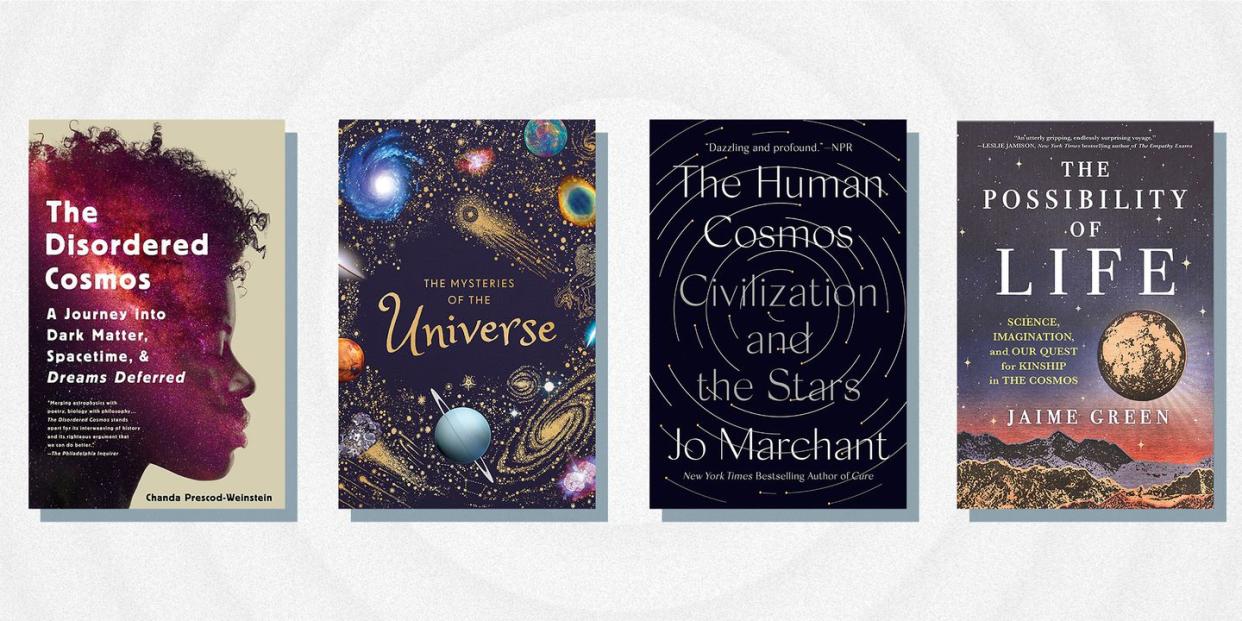
"Hearst Magazines and Yahoo may earn commission or revenue on some items through these links."
Astronomy is a subject as vast and fascinating as the night sky itself. Humans have been charting out changes in the heavens for thousands of years. During that time, our species’ growing understanding of the cosmos has shaped our spiritual beliefs and driven us to develop new technologies.
These days, high-tech cameras and sensors enable modern astronomers to do everything from hunting for habitable exoplanets to scoping out ancient black holes. But the wide and wonderful world of astronomy is still accessible to anyone with a simple backyard telescope—or even just their own eyes.
Whether you're a budding amateur astronomer who’s ready to learn more about your favorite constellations, an aspiring UFO hunter eager to hunt for alien lifeforms, or a wannabe space fan with no idea how to get started, here are the best astronomy books to enrich your relationship with the night sky.
Stargazer Gear: Best Telescopes ● Best Binoculars ● Best Star Projectors
Best Astronomy Books
The Expert: I’m a freelance writer and editor who’s covered science for more than a decade, most recently as the Executive Editor of Popular Science. I’ve reported on loads of space news during that time, and I love reading non-fiction books about astronomy and other topics in science. I’m also a published author myself.
What to Consider If You’re Looking to Get Into Astronomy
What is Astronomy?
Merriam-Webster defines astronomy as “the study of objects and matter outside the earth's atmosphere and of their physical and chemical properties.” In other words: space and everything in it, minus our planet and everything that lives in, on and around it. That makes astronomy a pretty massive academic field. Specialties that technically fit under the astronomy umbrella include (but are by no means limited to):
Exobiology, a branch of biology concerned with the search for life outside the earth and with the effects of extraterrestrial environments on living organisms.
Astrophysics, which studies the behavior, physical properties, and dynamic processes of stars and other celestial bodies.
Cosmology, which deals with the origin, structure, and space-time relationships of the universe.
Astrometry, which studies how celestial bodies move and are positioned in space.
Selenography, which focuses on the physical features of the moon.
Helioseismology, which uses the oscillations of the surface of the sun to study its interior
Beyond the many specialties that exist within the field of astronomy, there are also scientists and historians who study the cultural significance of humanity’s relationship with the stars. If you’re looking to learn more about astronomy, it’s worth doing some preliminary research to narrow down exactly which aspect of astronomy you want to dig into.
What do you want to do with your astronomy knowledge?
In addition to picking a specific subject area, consider what you hope to gain. Do you just want to learn some cool facts about the cosmos? Awesome. There are dozens of amazing books waiting to add to your personal repository of astronomy knowledge.
If you have more concrete goals, there’s likely an astronomy book out there for you, too. If you’re hoping to become more confident with your backyard telescope, you should look for a book on stargazing, rather than reading a whole book about the Big Bang. If you’re looking for something with an exciting narrative, consider picking up an astronaut’s memoir or some science-heavy science fiction instead of plowing through a textbook. If you just want to sit back and gaze upon the awe-inspiring beauty of the cosmos, there are plenty of coffee table astronomy books just waiting to catch your eye.
Why should you care about astronomy?
The study of the stars can seem like a lofty pursuit. Who cares about what’s going on up in space?
For starters, astronomy is one of the most accessible areas of science for everyday people. The sky is right there. While light pollution and smog can get in the way, most folks are at least within a car or train ride of a spot where they can see some kind of stars, meteors or comets. Reading about astronomy can help you get more out of the universal human tendency to look up.
Astronomy also has some pretty big implications for life on Earth. Space weather in the form of solar storms could one day put our electrical grid in peril. Private citizens are already lining up to go to space as astronomical tourists. Studying other planets could help us understand what the future of life on Earth will look like. And hey; is there anything more human than asking whether we’re alone in the universe? The best astronomy books can help you dive into all these topics and more.
How We Selected The Best Astronomy Books
I relied on a mix of personal experience as a writer, editor and reader along with advice from several professional astronomers to come up with a shortlist of the best astronomy books. I also dug into consumer reviews on websites like Amazon and GoodReads to track down additional astronomy books to consider.
'Cosmos: A Personal Voyage' by Carl Sagan (narrated by LeVar Burton)
This astronomy classic hits all the nostalgia buttons, especially as an audiobook. It’s narrated by LeVar Burton, known for starring in Star Trek: The Next Generation and hosting the beloved show Reading Rainbow. His voice is the perfect delivery mechanism for Carl Sagan’s work, which revolutionized the ability of everyday people to understand the cosmos. Dr. Chanda Prescod-Weinstein, a theoretical physicist and author, had this to say about the book:
Cosmos by Carl Sagan remains one of the best books on the universe out there. In a friendly, accessible voice, Sagan welcomes readers to see the fabric of spacetime as not only a glorious phenomenon, but also something with which we are intimately connected. It is a powerful read that has profoundly shaped my career as a scientist and writer.
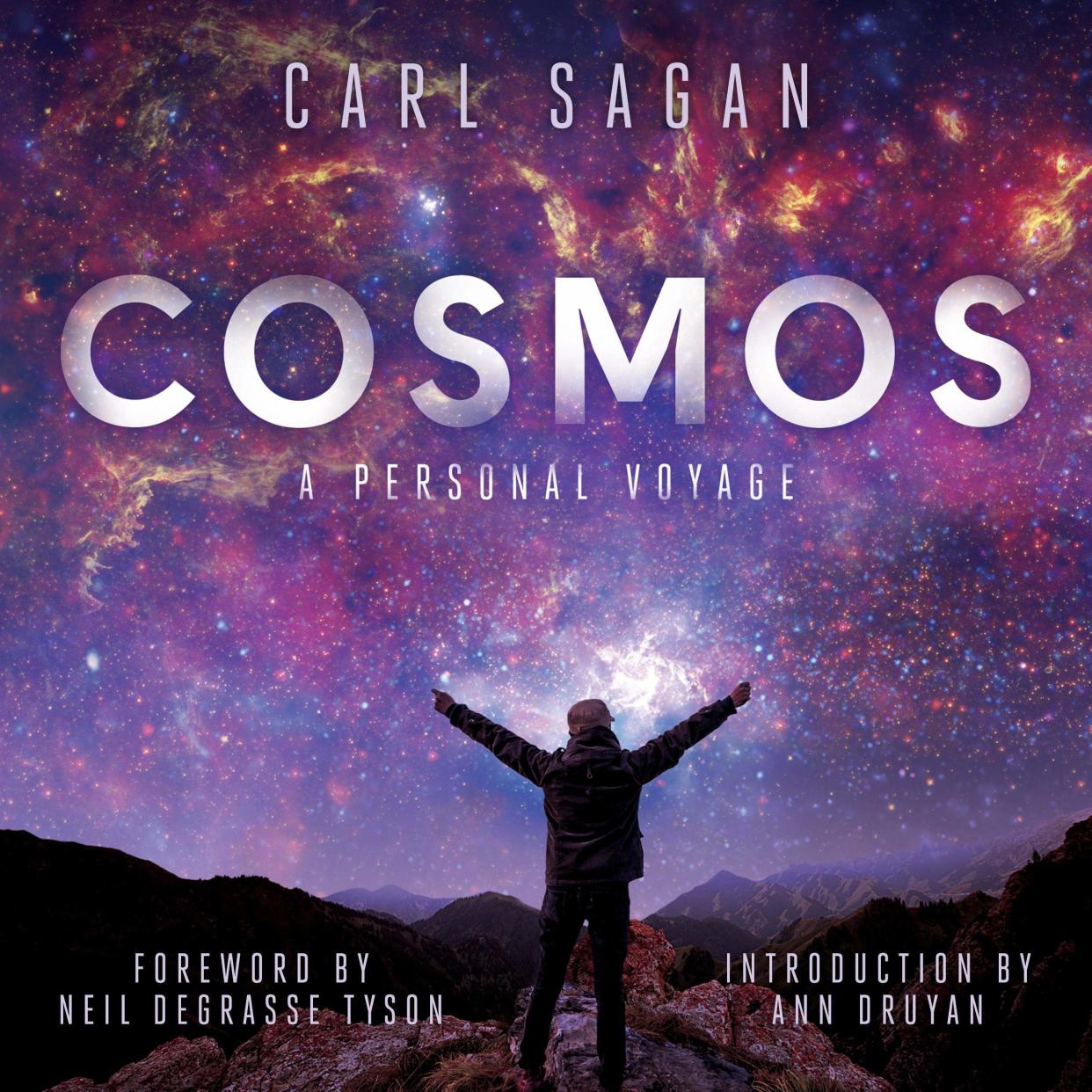
'Cosmos: A Personal Voyage' by Carl Sagan (narrated by LeVar Burton)
$25.99
amazon.com
'The Possibility of Life: Science, Imagination, and Our Quest for Kinship in the Cosmos' by Jamie Green
One of the most powerful questions humans ask about the cosmos is: Are we alone? That question isn’t purely scientific. It can also tell us a lot about who we are as a species—and what we value about the idea of being human.
Jaime Green, a science journalist, traces the history of our exploration of the cosmos, weaving in insights from science fiction writers who create worlds that inspire scientists in turn. Green doesn’t shy away from discussing the latest findings in astronomy and other sciences, but is just as interested in devoting time to philosophy and pop culture.
The result is a profound and intriguing book that inspires readers to daydream about making contact with alien lifeforms—while also reminding them that Earth is already packed with a wonderfully diverse array of living creatures.
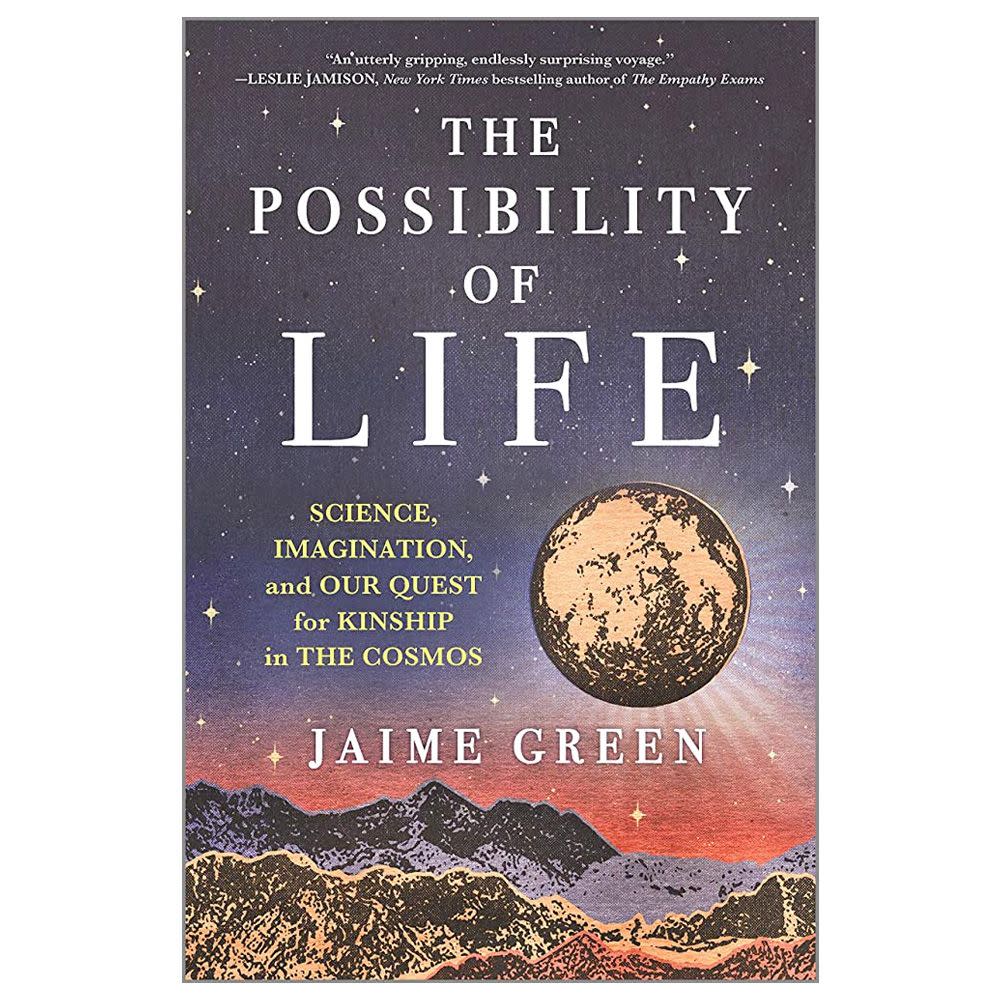
'The Possibility of Life: Science, Imagination, and Our Quest for Kinship in the Cosmos' by Jamie Green
$24.99
amazon.com
'The End of Everything: (Astrophysically Speaking)' by Katie Mack
The universe is infinite, but it won’t go on forever. Theoretical physicist Dr. Katie Mack—known for making cosmology both accessible and hilarious—confronts this inconvenient truth head-on in her debut book.
Mack digs into the five different ways the universe could plausibly end; The Big Crunch, the Heat Death, Vacuum Decay, the Big Rip, and the Bounce. In a surprisingly chipper and hilarious tone, Mack uses each scenario to teach important lessons in quantum mechanics, cosmology, string theory, and other areas of physics.
The End of Everything: (Astrophysically Speaking) is a fun read for astronomy beginners and professional cosmologists alike, and will have you chuckling through your existential dread.
Astrophysicist Dr. Moiya McTier had this to say about the book: “The End of Everything: (Astrophysically Speaking) explains the possible ways for the universe to end in a way that doesn't make me freak out.”
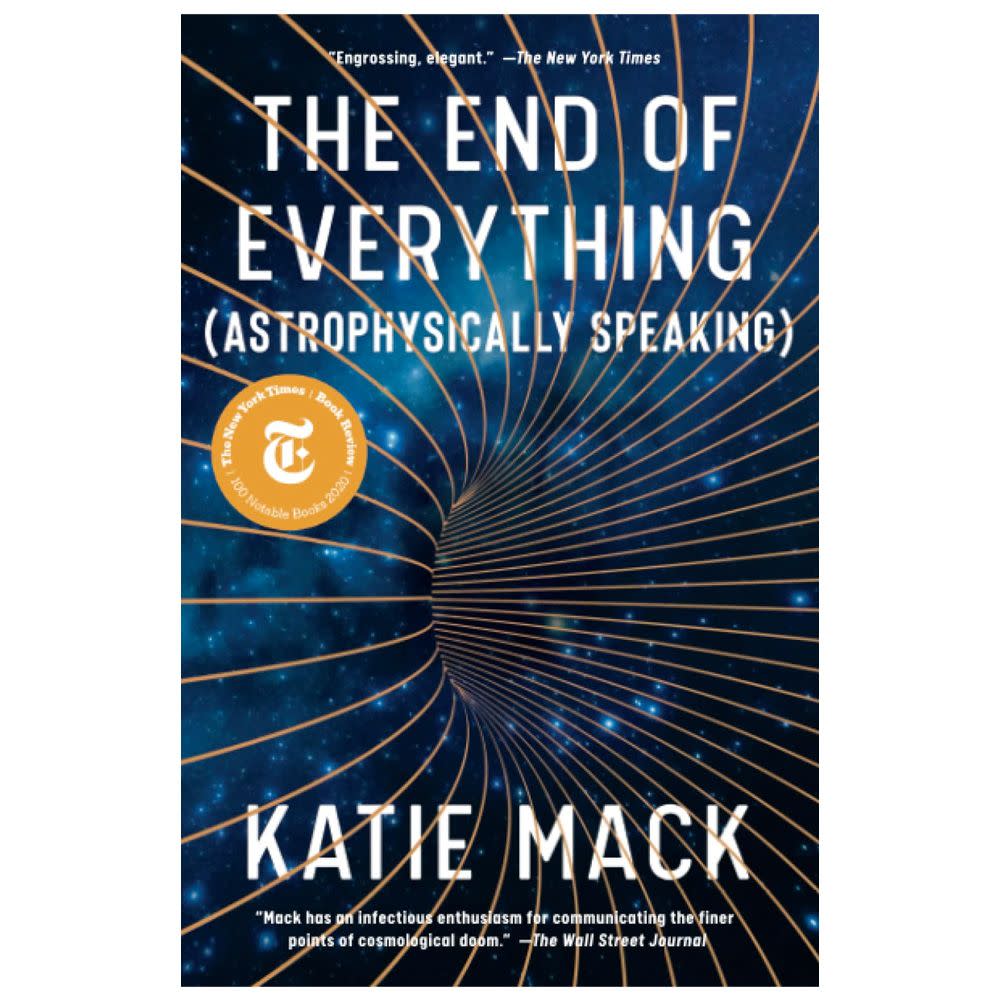
'The End of Everything: (Astrophysically Speaking)' by Katie Mack
$12.69
amazon.com
'The Mysteries of The Universe: Discover The Best-Kept Secrets of Space' by Will Gater
This astronomy book is written for kids aged 6-8, but we won’t judge any adults who enjoy it on their own time. With stunning photos and illustrations, this user-friendly space encyclopedia takes you on a journey to 100 remarkable objects in the universe—planets, asteroids, black holes, and more.
It’s a fun, fact-filled book that couples simple, storybook-style text with out-of-this-world illustrations. The Mysteries of The Universe is perfect for kids (and kids at heart) who already love space, or for sparking a new interest in the stars.
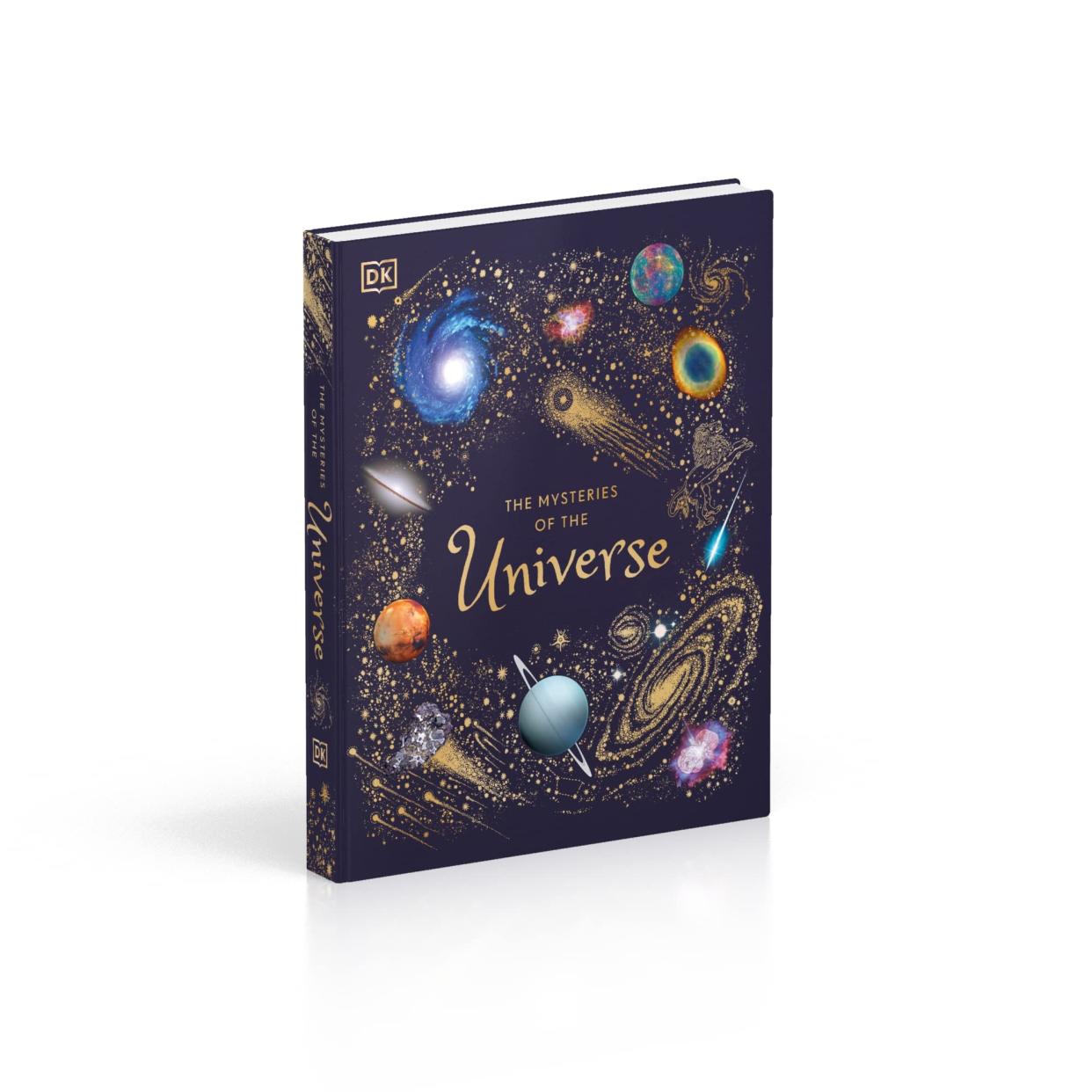
'The Mysteries of The Universe: Discover The Best-Kept Secrets of Space' by Will Gater
$12.29
amazon.com
'The Disordered Cosmos: A Journey into Dark Matter, Spacetime, and Dreams Deferred' by Chanda Prescod-Weinstein
In this award-winning debut, Dr. Chanda Prescod-Weinstein shares her love for physics—from the physics of melanin in skin to the latest theories on dark matter. But Prescod-Weinstein, who is one of fewer than 100 Black American women to earn a PhD from a department of physics, also urges readers to recognize how scientists and their biases shape science as we know it.
The night sky, she reminds us, belongs to everyone—and until the formal study of it does as well, she argues, science will never reach its full potential.
Astrophysicist Dr. Moiya McTier had this to say about the book:
Chandra Prescod-Weinstein's Disordered Cosmos is a thought-provoking blend of theoretical physics and social sciences. It invites readers to examine who gets to become a scientist in our society, and it's just as important for people to ponder that as it is for them to understand the universe's secrets.
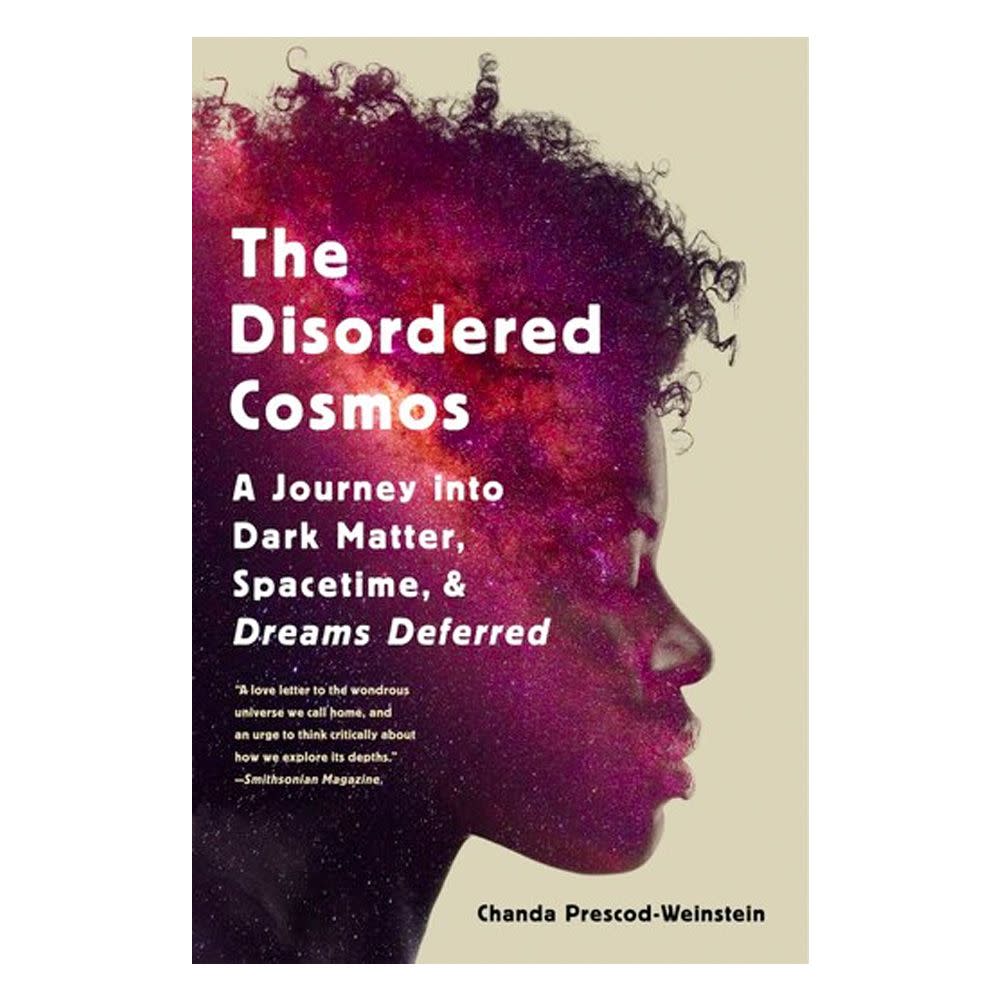
'The Disordered Cosmos: A Journey into Dark Matter, Spacetime, and Dreams Deferred' by Chanda Prescod-Weinstein
$12.99
amazon.com
'The Milky Way: An Autobiography of Our Galaxy' by Moiya McTier
You read that correctly: This is an autobiography of our galaxy. After graduating from Harvard as the first person in the school's history to double-major in astronomy and mythology, McTier went on to earn a PhD in astrophysics at Columbia University. Her unique interdisciplinary perspective makes her the ideal folklorist to the stars.
Blending scientific accuracy with accessible language, McTier presents the entire history of humanity’s exploration of space as a juicy tell-all from the vantage point of the Milky Way itself. Dr. Chanda Prescod-Weinstein, a theoretical physicist and author, had this to say about the book:
The Milky Way: An Autobiography of Our Galaxy by Moiya McTier is a deeply creative perspective on the history of our home galaxy. Told from the first person perspective of the Milky Way, McTier gives the galaxy a personality of its own, making this a distinct way of getting at what we do and do not know about the formation of large structures in the universe.
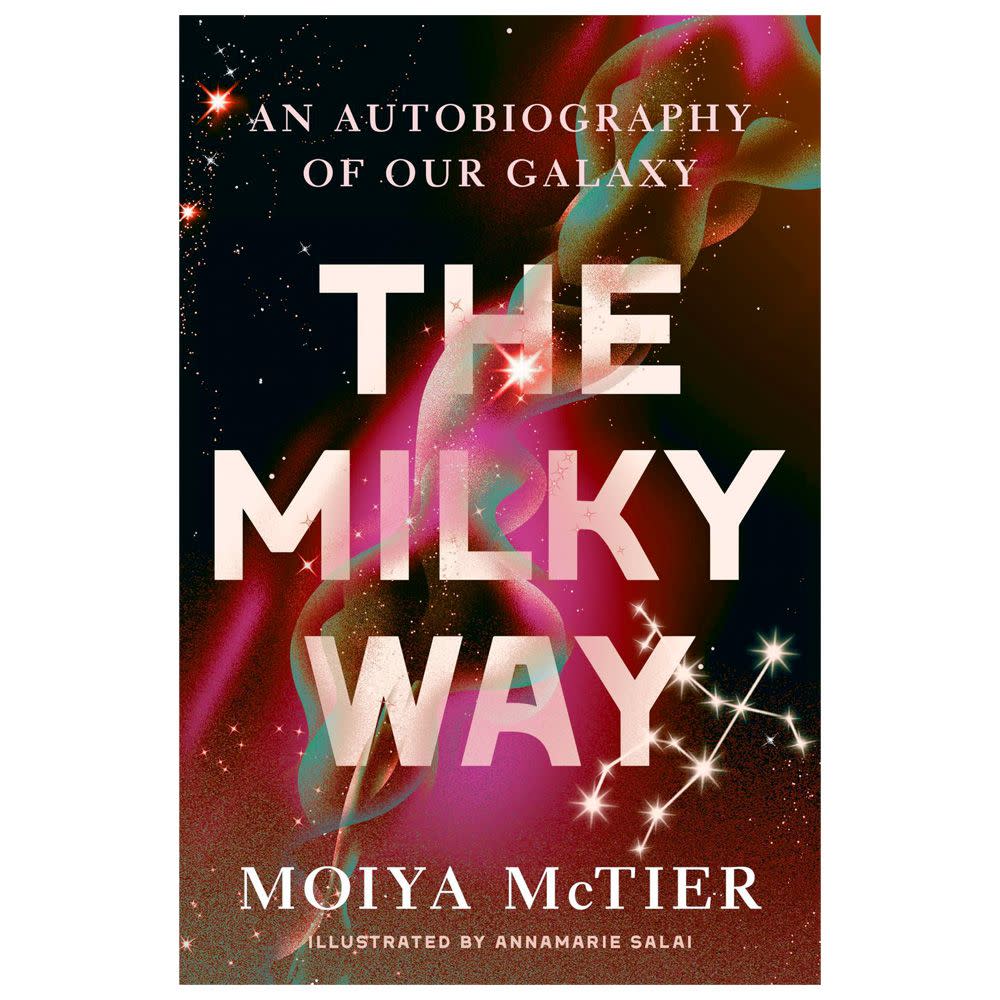
'The Milky Way: An Autobiography of Our Galaxy' by Moiya McTier
$13.99
amazon.com
'The Backyard Astronomer's Guide' by Terence Dickinson and Alan Dyer
Critics say that this backyard astronomy guide—otherwise known as the “sky bible”—is the closest a reader can get to having hands-on lessons with a seasoned stargazer. Accessible but incredibly thorough, this book will help you go from casually looking at the night sky to confidently identifying celestial bodies in your own backyard.
The fourth edition of this classic field guide for amateur astronomers is up-to-date with the latest information on observing techniques and equipment. It features new photographs, star charts, and essays.
The Backyard Astronomer's Guide is packed with new content on naked-eye sky sights, LED lighting technology, WiFi-enabled telescopes, and astronomical gear. It's an essential reference for all stargazers, especially those interested in the upcoming solar eclipse in 2024.
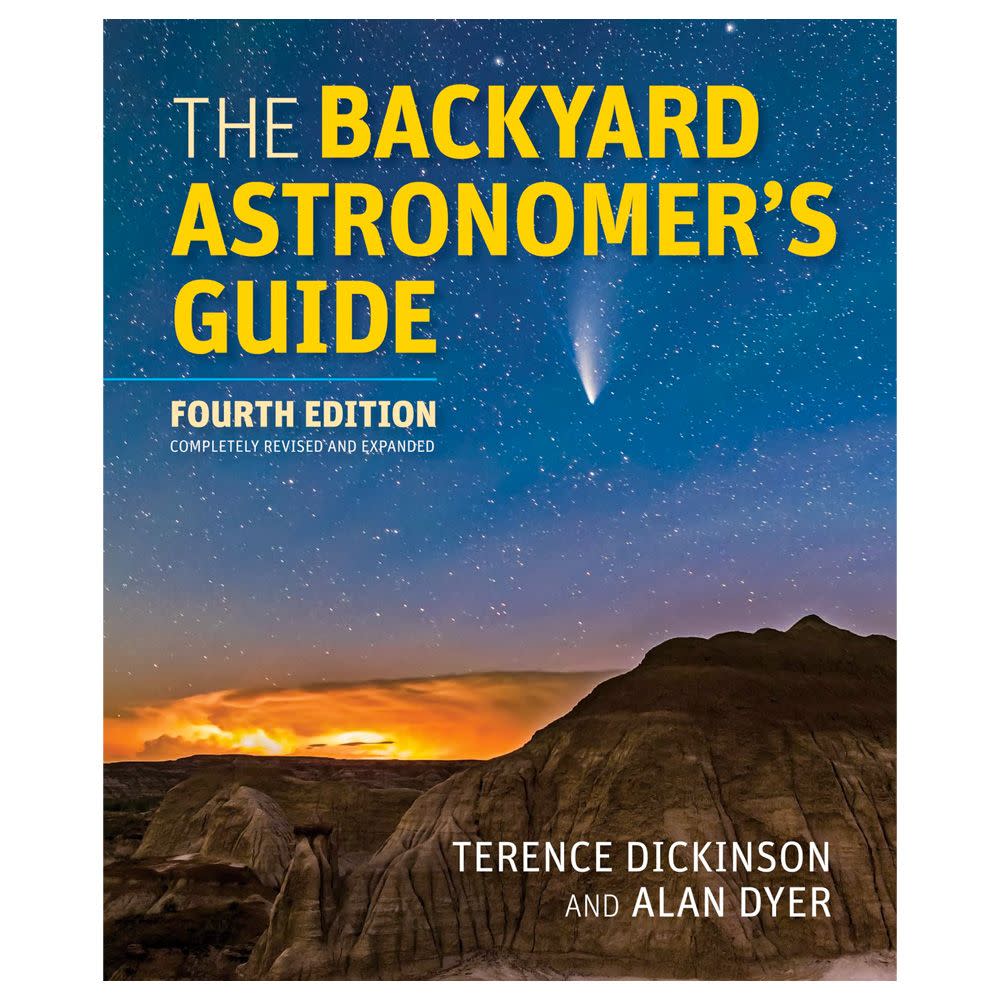
'The Backyard Astronomer's Guide' by Terence Dickinson and Alan Dyer
$34.49
amazon.com
'Constellations: The Story of Space Told Through the 88 Known Star Patterns in the Night Sky' by Govert Schilling
Let award-winning astronomy writer Govert Schilling take you on a breathtaking journey through the 88 officially-recognized constellations in the night sky. Schilling uses the constellations to guide you through a complete history of astronomy, detailing their earliest descriptions and using them as landmarks to detail scientific discoveries that occurred in their vicinity.
But this isn’t your typical history book: Packed with stunning star maps designed by acclaimed cartographer Wil Tirion, it’s a lush and beautiful read book that brings style and substance to any nerd’s coffee table.
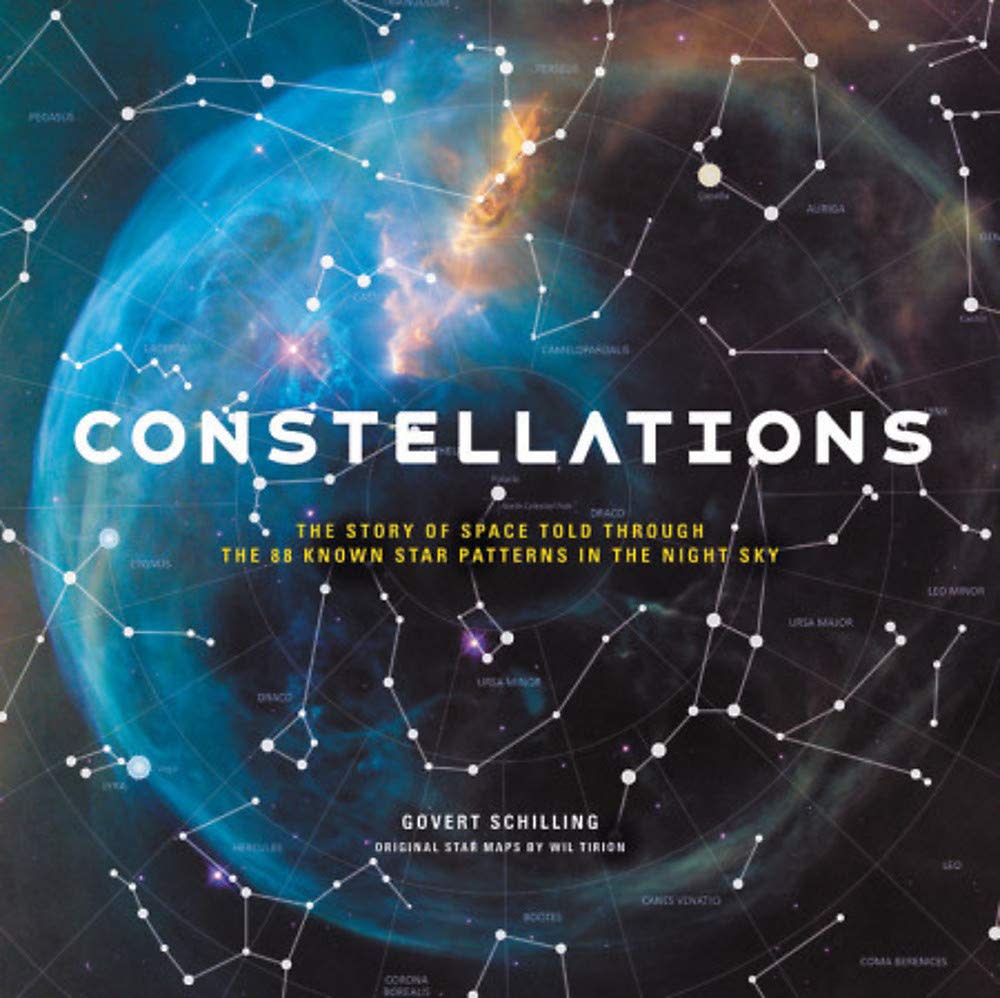
'Constellations: The Story of Space Told Through the 88 Known Star Patterns in the Night Sky' by Govert Schilling
$26.99
amazon.com
'The Science of Interstellar' by Kip Thorne
Most “science of insert movie or television show here” books are kind of a stretch at best. (Does anyone really want to understand where Spider-Man’s webs would come out in real life?)
But this best seller from Nobel prize-winning physicist Kip Thorne is definitely the exception. Thorne, who served as a scientific consultant for the filmmakers who created the runaway hit Interstellar, shows readers that the movie’s jaw-dropping scenes are grounded in real astrophysics.
With intriguing insight into the process of creating the movie and in-depth explanations of the actual universe around us, this beautifully illustrated book is perfect for cinephiles and astronomy enthusiasts alike.
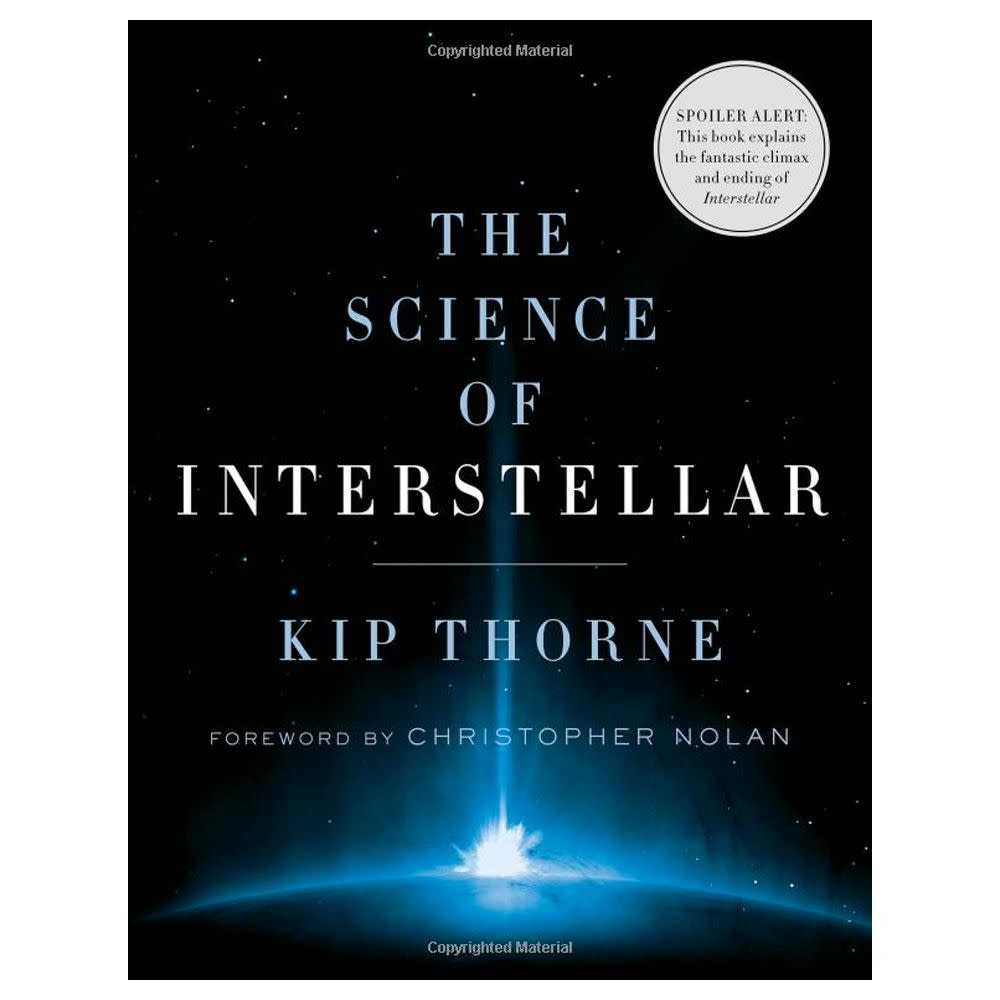
'The Science of Interstellar' by Kip Thorne
$17.99
amazon.com
'The Human Cosmos: Civilization and the Stars' by Jo Merchant
For 20,000 years, humans lived in tune with the cosmos. We looked up at the stars with awe and wonder, forming a connection to the sky that shaped our culture, beliefs, and even science as we know it. Acclaimed science journalist Jo Marchant argues that humanity has lost our primal connection with the night sky—and that it’s time for us to reconcile with the heavens.
As an antidote to an increase in light pollution and a decrease in wonder and awe, Marchant looks back at humanity’s history of stargazing to remind readers how the cosmos shaped our species. Did staring at the stars make us human? Marchant masterfully blends science and folklore to prove that the answer is a resounding yes.
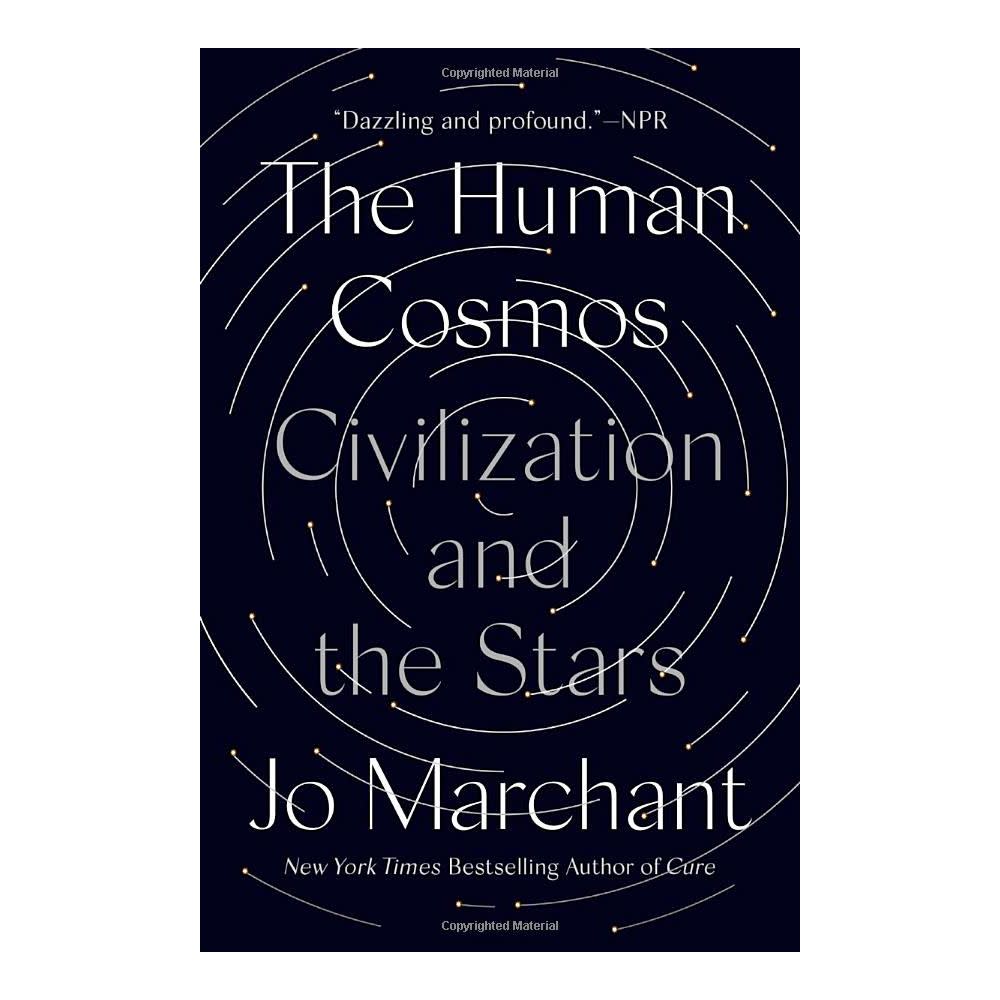
'The Human Cosmos: Civilization and the Stars' by Jo Merchant
$14.44
amazon.com
Q+A With Our Expert
PM: What equipment do I need to become a backyard astronomer?
RF: Books like The Backyard Astronomer's Guide can help you get into astronomy with nothing fancier than your own eyeballs. But if you’re ready to take a closer look at the night sky, consider investing in a telescope.
Astronomy books can help you figure out what types of telescope and other stargazing equipment make sense for you. They can also provide you with star maps to reference while you’re scoping out the sky, which will help you know what to look out for and when.
PM: Where is the best place to go to look at the stars?
RF If you live in an area with light pollution—a city or even a dense suburb—you might have trouble seeing the stars. If you’re seriously interested in spotting some cool stuff in the night sky, then heading out into a rural area is a must. NASA recommends going a good 30 miles away from the nearest city for the best viewing conditions.
If you’re really ready to level up your stargazing game, consider taking a trip to a dark-sky preserve. These National Parks have exceptionally low light pollution and a track record of clear night skies. Many of them even hold guided events to help amateur astronomers make the most of the pristine stargazing conditions.
PM: How can I find other people interested in astronomy to hang out with?
RF: There are lots of social and educational clubs that revolve around stargazing. NASA’s Night Sky Network can help you find events, classes, and meet-up groups dedicated to backyard astronomy all over the country.

You Might Also Like
